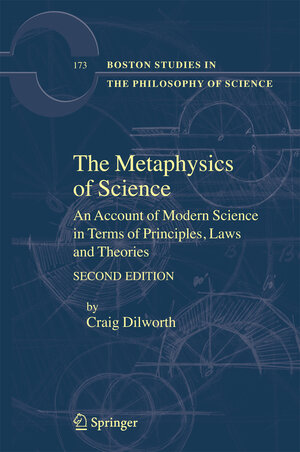
From the reviews:
"Dilworth does not content himself with a mere philosophical analysis of the phenomenon of modern science, but tries to draw a lesson from the analysis applicable to the actual practice of science. Whereas in its beginnings modern science was a paradigm of open-mindedness, it is now in danger of becomming an ideology, due to its refusal to reflect on its own principles. The Metaphysics of Science performs the much-needed function of opening the doors to such reflection - both for professional philosophers and scientists themselves''.(L. E. Fleischhacker, Epistemologia)
From the reviews of the second edition:
„Craig Dilworth’s second edition of The Metaphysics of Science contains the main text of an ambitious philosophical treatment intended to resolve realist-empiricist debates about the nature of science … . This book is worthwhile for philosophers of science and could profitably be assigned as reserve text for upper level undergraduate courses in history and philosophy of science of metaphysics. … Dilworth’s main aim is to propose and defend a metaphysics of science based on three ontological principles, uniformity of nature, substance, and causality.“ (Robert L. Muhlnickel, Metapsychology Online Reviews, Vol. 12 (22), May, 2008)
„Science makes metaphysical presuppositions. I must … at once declare an interest. … According to Dilworth, the three metaphysical principles constitute ‘the core of modern science’ … . They guide research and provide methodological rules. … Dilworth suggests that we need a new metaphysical paradigm for a new kind of science. … this book propounds an immensely important idea–even if one that received a much improved formulation at least twelve years before publication of the first edition.“ (Nicholas Maxwell, International Studies in the Philosophy of Science, August, 2009)



